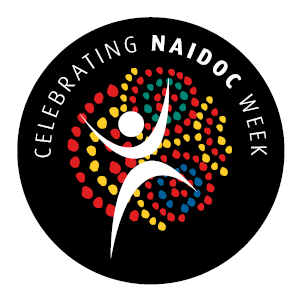Stay COVIDSafe this NAIDOC Week

NAIDOC Week 2021 will be celebrated from 4-11 July 2021 around Australia.
It is important that we continue to be COVIDSafe as we celebrate NAIDOC week so that we can protect the most vulnerable in our community, such as Elders. With community transmission of COVID-19 in parts of Australia, here are some things you can do to keep COVIDSafe.
Stay informed
Stay up to date with the restrictions and health advice in your state or territory.
You can also use the COVID-19 Restriction Checker to see what you can and can’t do in your state or territory.
Stay home if you are unwell
Do not attend NAIDOC Week celebrations if you are feel unwell. Please stay at home and find your nearest clinic to get tested.
You should also stay home if:
- you have been tested for COVID-19 and are waiting for your test results
- you are a close contact of someone who is being tested for COVID-19
- you have been in a COVID-19 hotspot or have been told you need to self-isolate
Stop the spread
You can help stop the spread of COVID-19 by:
- keeping your hands clean — wash your hands with soap and water (where possible) for at least 20 seconds or use hand sanitiser. Do this after you cough or sneeze, go to the toilet, and before you make any food;
- coughing or sneezing into the inside of your elbow, not your hands;
- putting your tissues in the bin after you use them and washing your hands after;
- not touching your face;
- cleaning surfaces often, such as door handles, kitchen and bathroom benchtops
- not hugging or shaking hands with people;
- keeping away from people and family if you are sick with a fever, cough or sore throat or are having trouble breathing — and seeking medical help.
Some states and territories now require the use of masks. Check the advice for your state or territory. Watch this video from Dr Ngaire Brown with instructions on how to wear a mask.
Check in every time
Checking in at venues and facilities helps with contact tracing and ensures you can be contacted should there be a COVID-19 outbreak in your area.
If you don’t have a mobile phone or are unable to use the QR code, please talk to someone at the venue who can help you check in.
You can also download the COVIDSafe app on your smartphones. COVIDSafe can help state and territory health officials contain the spread of coronavirus (COVID-19) should there be an outbreak. The app is completely voluntary and does not replace QR check-in codes or signing into a venue.
Get vaccinated
This NAIDOC Week, you can keep your mob safe by using the COVID Vaccine Eligibility Checker to see if you can receive the COVID-19 vaccine.
The vaccines will be available at your local Aboriginal Community Controlled Health Service, Commonwealth vaccination clinics, participating general practices, and state and territory clinics.
Take care of yourself
You may be celebrating NAIDOC Week differently than you had planned. Make sure you take care of your mental health during this time.
Gayaa Dhuwi (Proud Spirit) have culturally appropriate mental health resources available to download.
If you would like to chat, you can contact:
- Lifeline: 13 11 14
- Kids Helpline: 1800 551 800
- Suicide Call Back Service: 1300 659 467
- Beyond Blue: 1300 24 636
This NAIDOC Week, let’s keep our mob safe by making sure our events and celebrations are held in a COVIDSafe way.
For the latest advice on COVID-19 in Australia, visit www.australia.gov.au or call the National Coronavirus Hotline on 1800 020 080.
Looking for some COVIDSafe NAIDOC Week activities? Take a look at our Top 20 COVIDSafe NAIDOC Week Activities.
